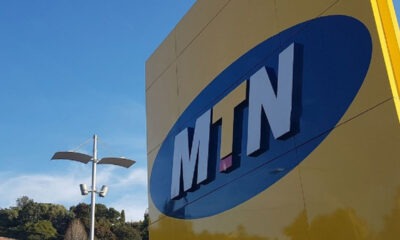- MTN Nigeria to List on Stock Exchange
Africa’s telecoms giant, MTN Group, yesterday said it would list on the Nigerian Stock Exchange (NSE) in the first half of this year.
This is coming on the heels of its recording very positive trade numbers in the 2018 fiscal year. MTN Group’s balance sheet showed total revenue of 37.971billion South African rand (equivalent of about N965.3billion), a statement from the firm indicated.
It said: “MTN plans to list by introduction on The Nigerian Stock Exchange during the first half of 2019 and is looking to simplify the capital structure ahead of this listing.
“The company’s listing on the Exchange will create a new telecoms asset class for investors and provide an opportunity for a wider group of Nigerians to participate in our investment story.
“This will be achieved via a listing by introduction and will be followed by a public offer once market conditions are conducive. Over time, and subject to market conditions, we anticipate that the participation of Nigerians in the ownership of the business will increase from around 20 per cent to 35 per cent.”
The telecom giant also announced a $1 billion divestment programme over the next three years that will slim down its operation and refocus it on high-growth markets on the continent and in the Middle East.
Shares in the company surged 15 per cent to 87.39 rand, on course for their biggest one-day rise in since 2008.
During the year under review, MTN Nigeria increased its mobile subscriber base by another six million people, bringing its tally to 58 million subscribers nationwide.
CEO, MTN Nigeria, Ferdi Moolman, said: “In 2018 we rebuilt the base; adding another six million Nigerians to our network, giving a total of 58 million people access to worldwide communication services.
“This growth was built on our sustained focus on customer centric delivery – ensuring that customers get much more value for their money.
“This included the deployment of proactive interventions to improve customer experience, together with the enhancement of network quality and coverage, and the optimisation of our services portfolio.
“We also enabled an additional 8 million people to access the possibilities that the internet provides, bringing our total data subscriber base to 44 million, of which 18.7 million use more than five megabytes per month.
“We are now even better positioned to ensure that everyone can access the benefits of a modern connected life. We are excited to have been given the privilege to continue playing a role in facilitating this, and are grateful to our customers, our people, our partners and our regulator for making this possible.
“We understand how access to the opportunities enabled by the internet can open up new industries even in the remotest areas of our country.
“Thus, we will continue to focus on delivering social innovations like mobile electricity, financial services for all; and leveraging our technology as a vehicle to enable high-impact mobile solutions in education, health and agriculture in our communities – urban and rural.”


 Forex3 weeks ago
Forex3 weeks ago


 Naira2 weeks ago
Naira2 weeks ago
 Billionaire Watch2 weeks ago
Billionaire Watch2 weeks ago




 Naira2 weeks ago
Naira2 weeks ago




 Naira2 weeks ago
Naira2 weeks ago




 Naira1 week ago
Naira1 week ago




 Naira4 weeks ago
Naira4 weeks ago




 Naira3 weeks ago
Naira3 weeks ago















